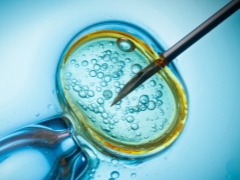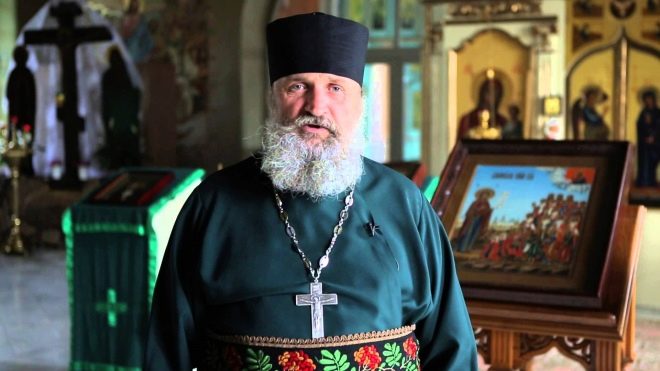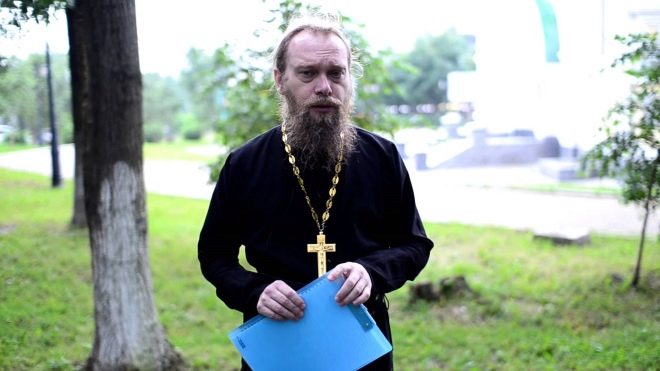How does the church relate to IVF?
IVF has existed for about 40 years, but discussions around reproductive medical techniques do not stop. Doctors argue about the dangers and benefits of IVF, about possible risks, psychologists talk about the features of the development of a child born with in vitro fertilization, representatives of religions give their assessment of what is happening.
For the couple, which will be IVF, all these opinions are very important. In this article we will look at how the Orthodox Church and other confessions relate to fertilization outside the maternal organism, which is considered a sin, and what spouses can receive a blessing.
About the essence of the procedure
In order to better understand the relationship of religions to IVF, one needs to be well aware of what exactly doctors are doing and whether their actions can be considered as an intervention in the natural human nature. IVF is recommended for couples who cannot become pregnant on their own, and the causes of infertility of a man or a woman cannot be eliminated by other methods - medication, surgical treatment, psychotherapy, etc.
For fertilization, take the woman's egg, obtained during the puncture of the ovaries, and the sperm of a man. Fertilization takes place in the laboratory, that is, outside the woman’s body, and then the resulting embryos are placed in the uterine cavity. If fertilized oocytes are fixed, a long-awaited pregnancy occurs.
Some methods of IVF are based on closer to natural processes, when a woman does not receive hormonal treatment, 1 or 2 embryos are placed in the uterus - this depends on how many eggs were obtained. With the stimulated IVF protocol, when the preparatory stage is accompanied by stimulation of the ovaries, the number of eggs obtained may be higher. As a result, doctors receive a greater number of embryos and have the opportunity to choose from them some of the healthiest, strongest and most viable. The rest is recycled.
Sometimes IVF is possible only if there is a donor biomaterial - donor sperm or egg. This is necessary, from the point of view of medicine, in severe forms of infertility, when a woman, for example, has no ovaries, and a man has no testicles. Sometimes only a surrogate mother can bear a child. In this case, IVF is carried out with the spouses biomaterial, but another woman bears and gives birth to a baby.
Church attitude
Orthodox
The Orthodox faith makes particularly stringent demands on IVF. When artificial insemination only appeared, the priests strongly opposed IVF as such, motivating their protest by saying that children born of such fertilization do not have a soul. The soul, in the opinion of the Orthodox, is infused into the child at the moment when the husband and wife are close, and their sex cells are merged.
Gradually, as the spread of IVF became more widespread and growing, the attitude of Orthodoxy changed. ROC emphasizes that the main values are the life and soul of man. In general, the church is not against artificial insemination and recognizes the presence of the soul in children, obtained with the help of doctors, but there are a number of tangible limitations.
IVF in the natural cycle without hormonal stimulation is more natural not only for medical reasons, but also from the point of view of the Orthodox faith. With it, there is no screening of embryos. From the moment of fertilization, Orthodoxy regards the zygote as a living organism endowed with a soul.Embryo disposal is thus a sin comparable to infanticide. And the selection of embryos, according to the ROC, is unacceptable.
An Orthodox priest may be opposed because of the need to use donor sperm or female germ cells. Only IVF with the sperm of the husband and the egg of the wife does not contradict the idea of the purity of the marriage relationship. The sacrament is violated if fertilization is performed by someone else’s sperm or by using someone else’s egg, the marriage relationship loses its chastity and value.
Surrogate motherhood in Orthodoxy is considered immoral and inhuman. From the point of view of the church, all participants in such an IVF suffer: a child who may begin to experience difficulties with self-determination, a surrogate mother, who, contrary to the laws of nature and faith, will have to give up her born in the throes of a child to another woman. In fact, she gives birth and sells a child, exchanging a born and born baby for currency notes.
The church does not approve the preservation of embryos for the future, if they are not transferred to a woman. This is also a form of infanticide, similar to abortion. Also considered sinful is the choice of appearance, sex, certain genetic parameters of the unborn child, because in the process of this selection those children will die that will not pass it.
Orthodoxy prescribes a barren couple who could not be cured by other methods, accept childlessness as a given from above. Adoption of orphans is welcomed if both spouses agree to this. It is possible to receive a blessing on IVF if the couple plans to fertilize in a natural cycle or with stimulation, but on condition that all the resulting embryos are transferred to the woman, not one will be otbrakuyut. Donation and surrogacy cannot be blessed by the church.
Islam
The human right to continue the race in Islam is enshrined at the level of the fundamental basis. Therefore, in all cases of marital infertility, religion allows Muslims to receive the necessary treatment. IVF is also permitted, but subject to certain fundamental conditions. The main one is the presence in the process of only two - a husband and wife.
In other words, Islam is categorically against the use of donor germ cells for fertilization. It is believed that someone else's biomaterial violates the integrity of marital bonds.
Moral problems that do not give rest to the Orthodox concerning the selection of embryos, the selection of only healthy and strong ones, are not peculiar to Muslims. Islam believes that the first 40 days in the mother's womb from the moment of conception a person is only a drop of semen, then 40 days he is a drop of blood, another 40 days is just a soulless piece of flesh. Only 120 days after fertilization, Allah sends an angel who breathes the soul into the fetus. Thus, selection, which is carried out several days after fertilization, affects only the flesh and does not kill the soul.
Islam does not approve of the fertilization of a large number of eggs and encourages doctors and patients to be sensible in this process.
Disposal of embryos that are not strictly selected and cannot be transferred to the mother is not allowed.. Only disregarding them, natural death as a result of cessation of cell division is allowed. The remaining embryos, from the point of view of Islam, cannot serve as a donor for other married couples.
Buddhism
Buddhists gladly accept everything that brings people joy and happiness. IVF from this point of view is fully consistent with the principles of faith, because it gives the joy of motherhood and fatherhood to a fruitless couple and the joy of communicating with loved ones born to a new person.
Buddhism believes that the soul does not come and does not go away, it exists constantly and is only associated with the physical shell at the time of fertilization. That is why believers are called upon to reasonably relate to the number of fertilized eggs: the smaller, the better. Ideally, you should not fertilize the oocytes more than the woman can tolerate. But if breeding is required (parents have prerequisites for genetic disorders, for example), breeding is allowed. There are no other restrictions.
Buddhism is very tolerant of artificial insemination by donor germ cells, the use of surrogate motherhood. The main thing is not to forget about the karmic law and do everything so that the maximum number of people end up happy.
Judaism
The continuation of the race for the Jews is one of the main commandments. It is possible and necessary to continue it, even if naturally the couple cannot conceive a child. The rabbi blesses IVF for couples who have tried their best to conceive the baby naturally, but could not overcome infertility. In some cases, faith allows Jews to use donor biological material, as well as surrogate motherhood.
It is important in each case to consult with the rabbi, because one couple he approves of donor sperm, and the other - no. An individual approach is the main feature of this religion.
Judaism imposes sufficiently strict restrictions on the choice of a surrogate mother for carrying a baby. She should not be a relative of the spouses, as this is considered incestuous, and the woman should not be married, because it violates the rules of conjugal fidelity.
Many difficulties arise in the legal field. The rabbi must make sure that the spouses have clearly defined who the child will be considered a relative and heir - to him or the family of the surrogate mother. But the IVF procedure in Israel is fully paid for by the state, as well as the services of a surrogate mother until the moment two children appear in the family. If you later want a third child, then IVF will have to be done at your own expense.
Reviews
According to reviews of young mothers who have had the opportunity to have a child, thanks to IVF, the greatest difficulty arises in Orthodox families. It is still not always possible to find priests who baptize such children. Some priests flatly refuse to do this, citing the fact that baptism will be invalid.
The young mother has a small choice - either to refuse to be baptized, or to continue to search for a priest with more loyal views, or to hide the fact of IVF during confession before the ritual.
You can also go more honestly by contacting the ROC direct line and get advice. If necessary, the senior management will hold a conversation with a priest who refuses to baptize the baby and, perhaps, his opinion will change.
Adherents of other religions do not have to face such difficulties. Less than half of future mothers seek blessing to their confessor before the procedure. But a rather large percentage of women come to the rabbi, the priest, the pastor, the mullah after the pregnancy has already begun to develop, because they subconsciously need answers to many spiritual questions.
It is very rare to find women whom their spiritual mentors categorically prohibit any form of IVF. Usually such women are members of numerous sects and religious associations, which are quite aggressive and categorical. They have no free choice.
How the church relates to IVF, see the following video.

























